© ROOT-NATION.com - Use of content is permitted with a backlink.
This is the kind of review I’ve been waiting years to write. As more and more generic TWS earbuds flooded the market, I kept hoping the industry would finally offer something genuinely interesting — something suited to my tastes. But by 2024, most people have stopped buying physical music altogether, preferring streaming instead. Others, perhaps aiming to be nonconformist or nostalgic, have turned to vinyl records. Meanwhile, CDs have remained on the shelves without the industry pumping millions into making them trendy; they’re cheaper than vinyl, after all. And yet, people have kept buying them — so much so that sales are up this year.
I’m one of those people who never stopped buying CDs. I’ve been gradually growing my collection since 2004, and when I heard that FiiO was releasing a portable CD player, it felt like a real moment. Anyone familiar with this space knows that the last truly solid portable CD players disappeared in the late 2000s, pushed aside first by MP3 players and then by smartphones. While there’s still a market for home CD players, finding a high-quality new portable player has been nearly impossible. That changed this fall with the release of the DM13. Let’s take a closer look at what it offers and who it’s really for. At $179, it’s a fair price, but not a negligible one.
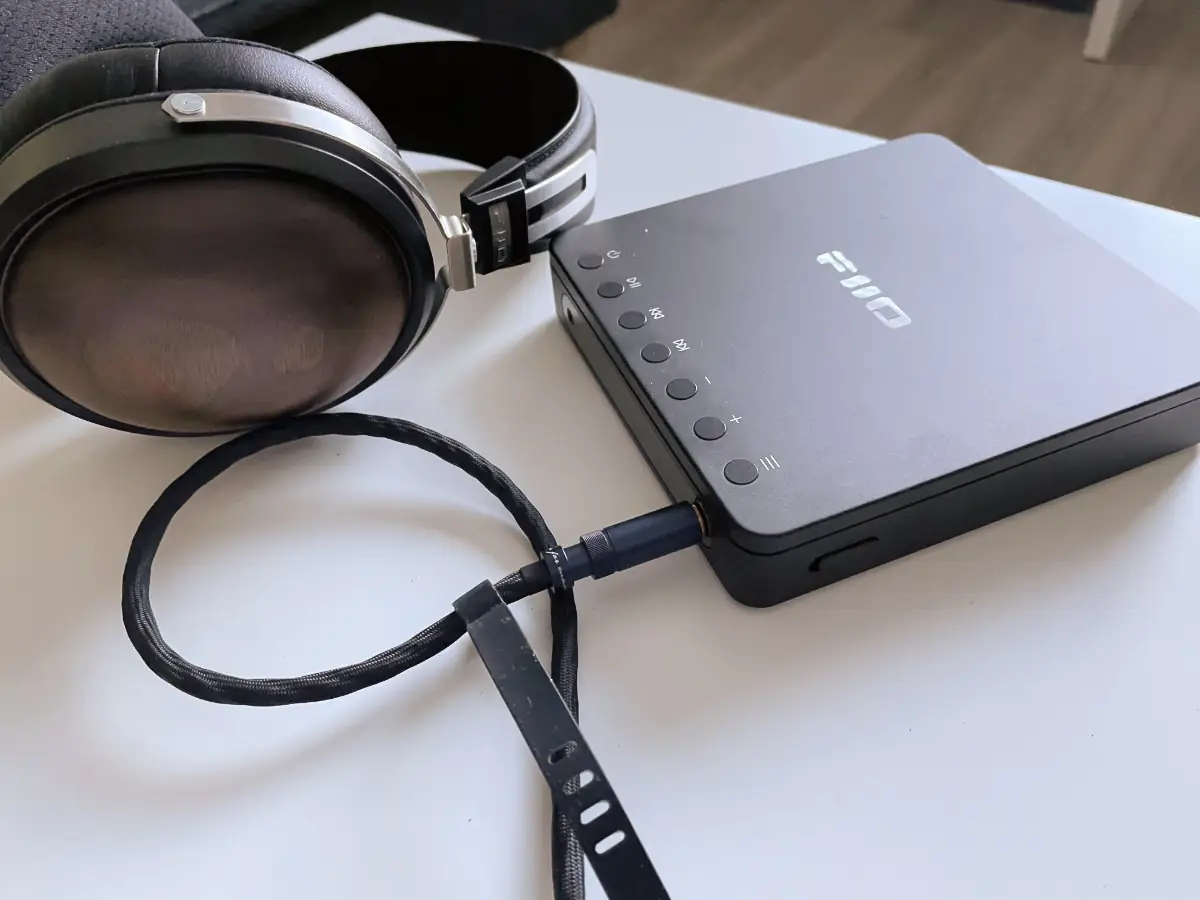
Specs
- Colors: Silver (standard and Bluetooth versions), Black (standard and Bluetooth versions), White (standard version only), White skylight (Bluetooth version only), Red (Bluetooth version only)
- Rated input: 5V⎓2A (Type-C)
- DAC chip: CS43198*2
- Headphone amp chip: SGM8262*2
- Display: 1.5-inch LCD
- Headphone output: 3.5mm single-ended + 4.4mm balanced
- Line output: 3.5mm LO/COAX/OPT combo output + 4.4mm balanced line output
- Output power 1: L+R≥180mW+180mW (32Ω, THD+N < 1%/single-ended)
- Output power 2: L+R≥660mW+660mW (32Ω, THD+N < 1%/balanced)
- Single-ended line output level: L+R=2.5Vrms+2.5Vrms
- Balanced line output level: L+R=5Vrms+5Vrms
- Supported Bluetooth output codecs: aptX HD/aptX Low Latency/aptX/SBC (Bluetooth version only)
- Supported CD-R formats: FLAC/WAV/WMA/AAC/MP3 (only supports SACD playback with CD layer)
- Signal-to-Noise Ratio: ≥124dB (A-weighted)
- Noise floor: PO ≤2.4μV (A-weighted), BAL ≤2.8μV (A-weighted)
- THD+N: ≤0.0024% (1kHz/0dB@32Ω)
- Battery capacity: 3750mAh
- Battery life: ≥10 hours
- Dimensions: About 144*137*27mm (excluding feet)
- Weight: About 450g
Design
Once upon a time, portable CD players came in designs as varied as early cell phones. Sony even produced a model smaller than the CD itself! But those days are gone.
FiiO knows how to make a stylish device. They successfully brought back the cassette player with the CP13 last year (both products are part of their “Music Renaissance” series). With the FDM13, they’ve taken a similar approach: it comes in a few attractive colors and has an aluminum casing. According to the company, lab tests show that the disc tray can withstand 5,000 openings and closings. While it’s not as slim as some of the more compact models from Sony or Panasonic, its dimensions of 144×137×27 mm are still reasonable.
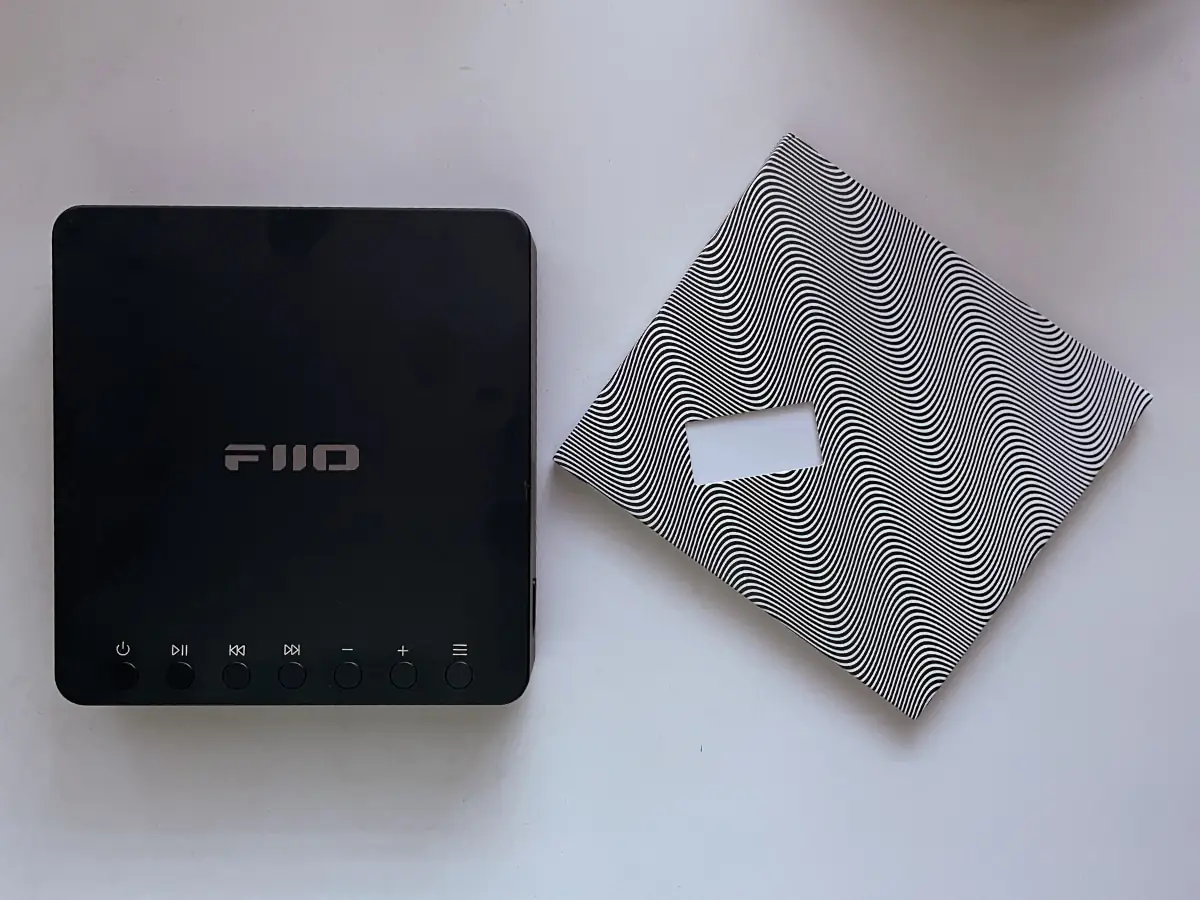
I’d describe the design as classic — no radical choices, with each element aiming for functionality, though not without some quirks. Overall, I like how the player looks, though a few usability issues stood out immediately. For one, where’s the “Stop” button, which is standard on any player of this type? And why make all the buttons identical? It makes them difficult to find by touch alone.
Navigating this device, in general, is challenging. Instead of adding more buttons, FiiO opted to combine multiple functions into one or two buttons, which doesn’t make for the most user-friendly experience.
Read also: reMarkable Paper Pro review: Color Me Surprised
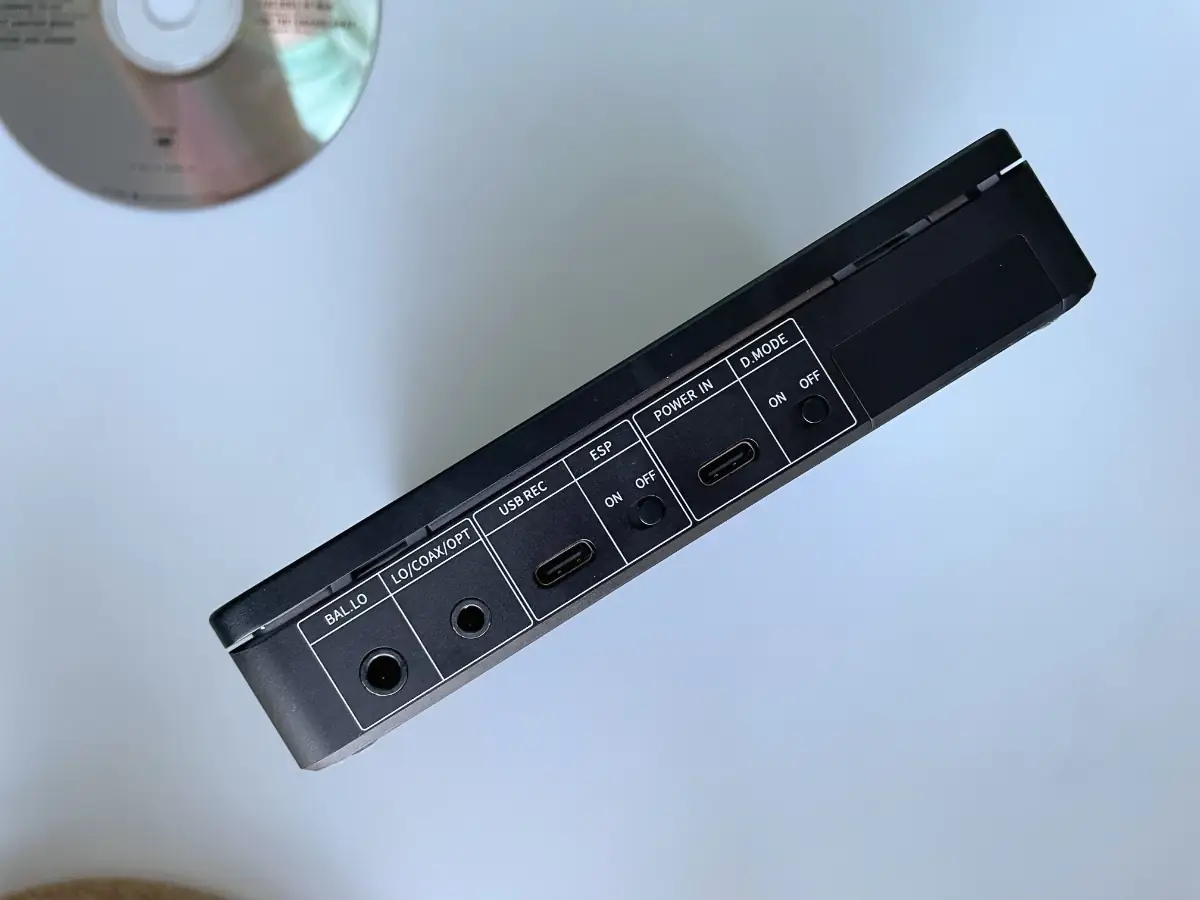
The front of the device features an LCD display, which mostly gets the job done, though it could stand to be more informative — for instance, by constantly displaying the battery level. Checking battery life requires pressing the power button after turning on the device, and even then, the readout is non-intuitive. The display shows a “BAT” code for battery levels: BAT5 means full, BAT4 indicates 80-90%, BAT3 represents 60-80%, BAT2 for 40-60%, BAT1 for 20-40%, and BAT0 signals low power. It’s unexpectedly complex — needing to consult a manual for a CD player isn’t ideal. There’s also no LED or status indicator to show if the device is charging.
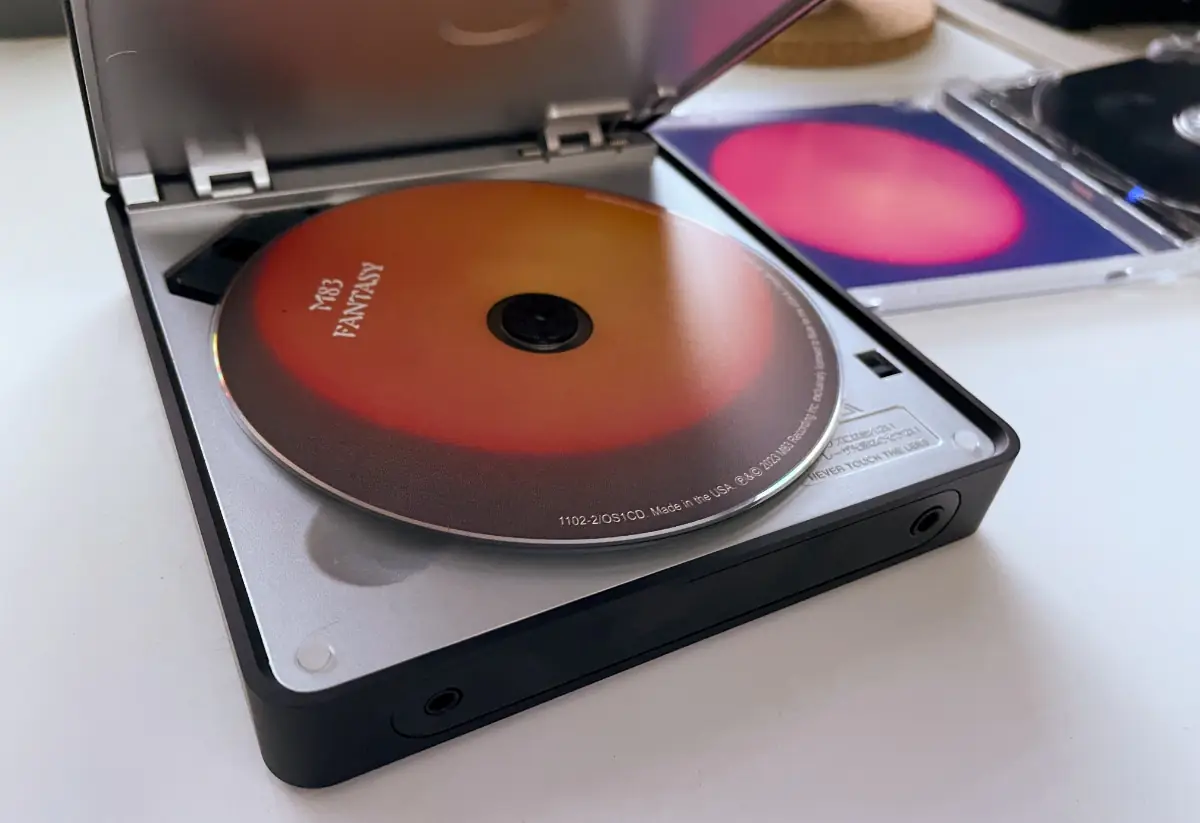
On the right side is a slider for opening the lid, along with a selection of ports. The standard 3.5 mm stereo mini-jack is here, but the inclusion of a balanced 4.4mm PENTACONN port is a surprise; it’s rare on portable players and typically found on higher-end devices to accommodate more demanding headphones. I used this connection during testing.
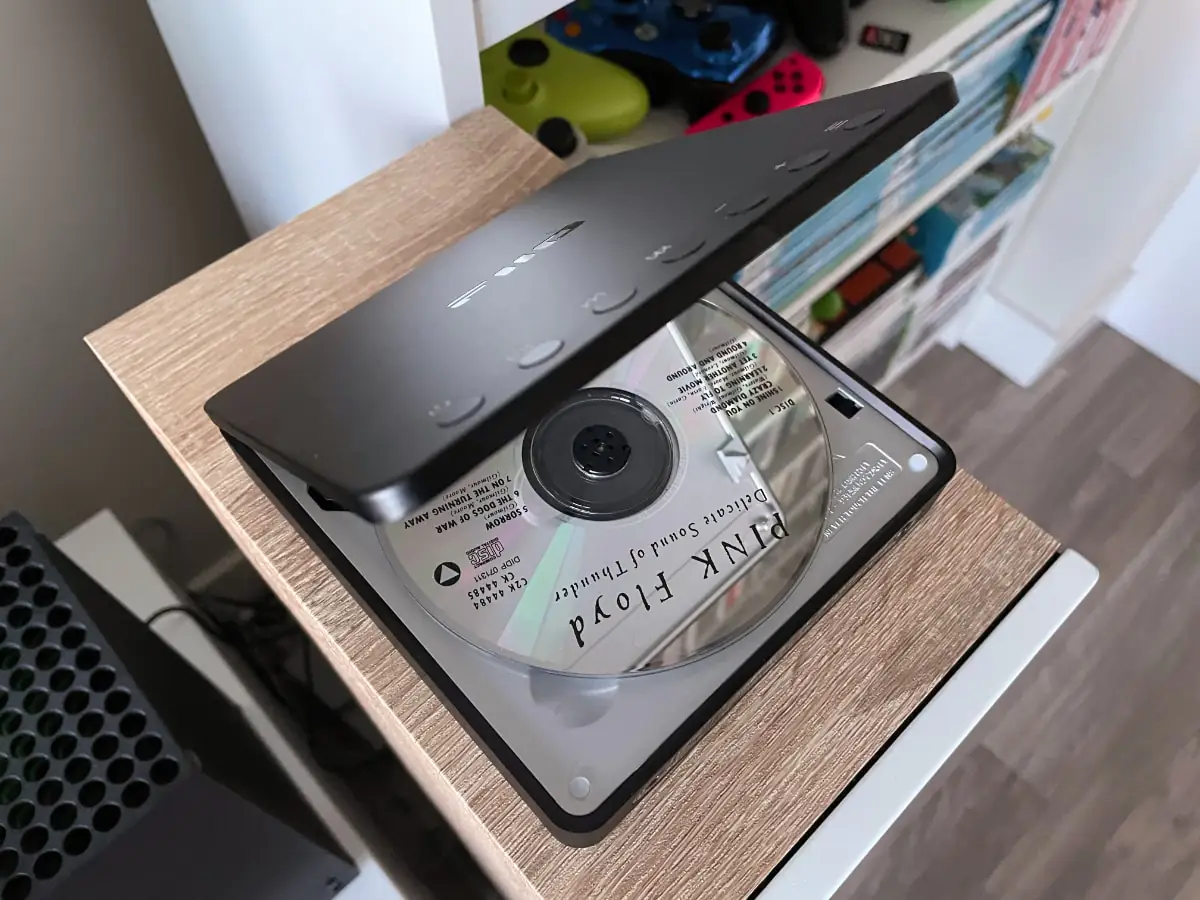
Sound and playback
Portable CD players have historically focused on convenience, durability, and comfort over sound quality. The DM13, however, aligns with FiiO’s audio-focused design philosophy. Inside, dual Cirrus Logic CS43198 flagship chips work with two HiFi-grade SGM8262 headphone amplifiers, providing a sound output that’s anything but small.
One drawback is the volume control. It offers 100 volume levels, adjustable by + and – buttons on the lid — functional, but I would have preferred a wheel, especially as the default volume was set to 100 right out of the box. With automatic playback, that was almost deafening.
Read also: FiiO BTR13 review: Affordable portable DAC
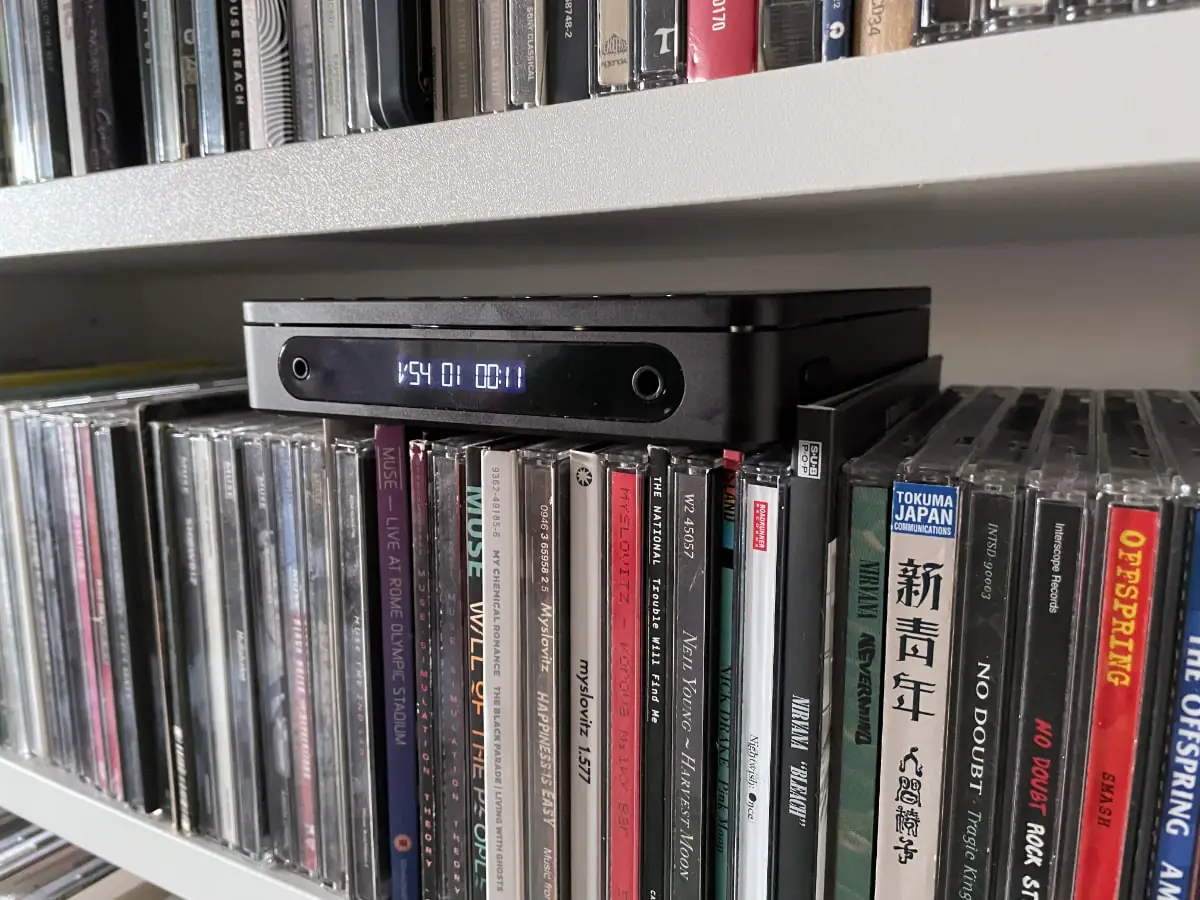
FiiO’s promises for audio quality were evidently justified. From the first listen, the DM13 produces excellent sound. I tested it with FiiO FT1 headphones and experienced natural, rich audio free from background noise or volume issues. Playing a Pink Floyd album, I was immediately immersed, forgetting it was a portable player. After putting dozens of different albums through it, the player consistently delivered impressive sound.
Playback, however, is not flawless. The “cold start” from loading to playing a disc is fairly quick, and the device even remembers where playback left off before being turned off — a useful feature. But gapless playback is unreliable; sometimes it works seamlessly, and sometimes it doesn’t, which is particularly disruptive for live recordings or concept albums where uninterrupted flow is essential.
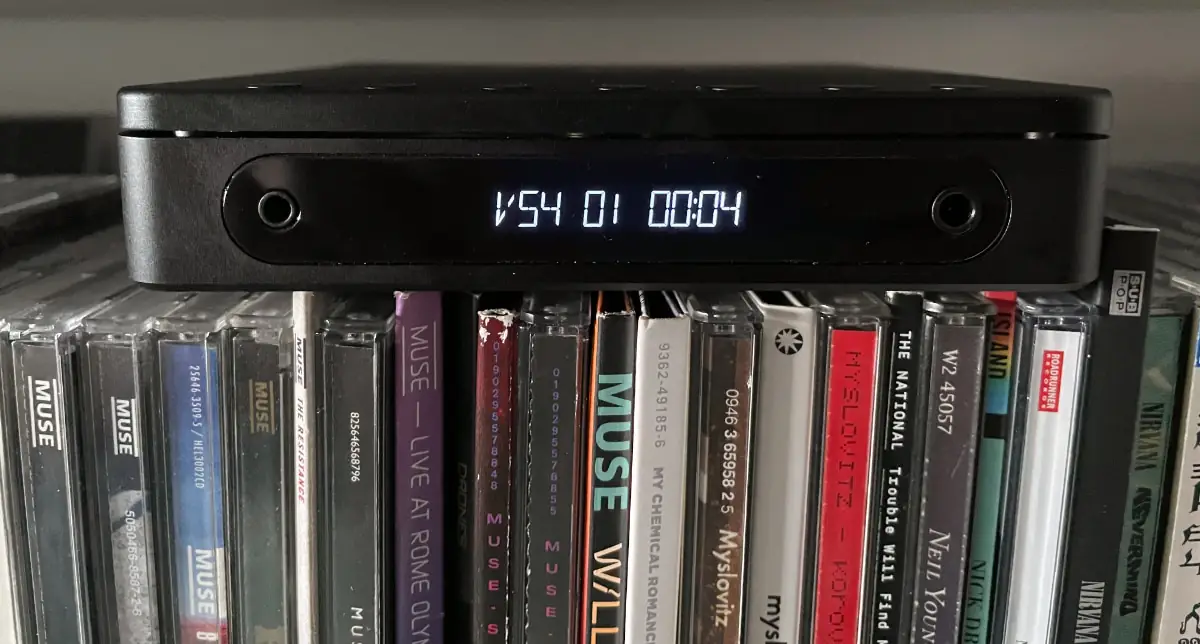
The DM13 includes anti-skip protection, which works fairly well. While I generally prefer not to listen to CDs on the go, it’s certainly feasible with this player.
In a quiet room, the player isn’t exactly silent; you can hear it working, which is understandable given the physical mechanics involved.
The real appeal of the DM13, however, is that it’s more than just a retro gadget. It can function not only as a standalone Discman but also as a transport when paired with an amplifier or active speakers. The player includes both analog and digital outputs, allowing it to double as a desktop CD player. Additionally, it supports ripping albums into WAV files — a convenient option for those without a disc drive in 2024.
However, this ripping process is extremely slow and convoluted. Since a computer recognizes the DM13 as an external sound card rather than a CD drive, it transfers audio at playback speed. And during this process, the album can’t be listened to either. It’s a throwback to the days when we recorded music onto cassette tapes. While it’s good that this option exists, its execution leaves something to be desired.
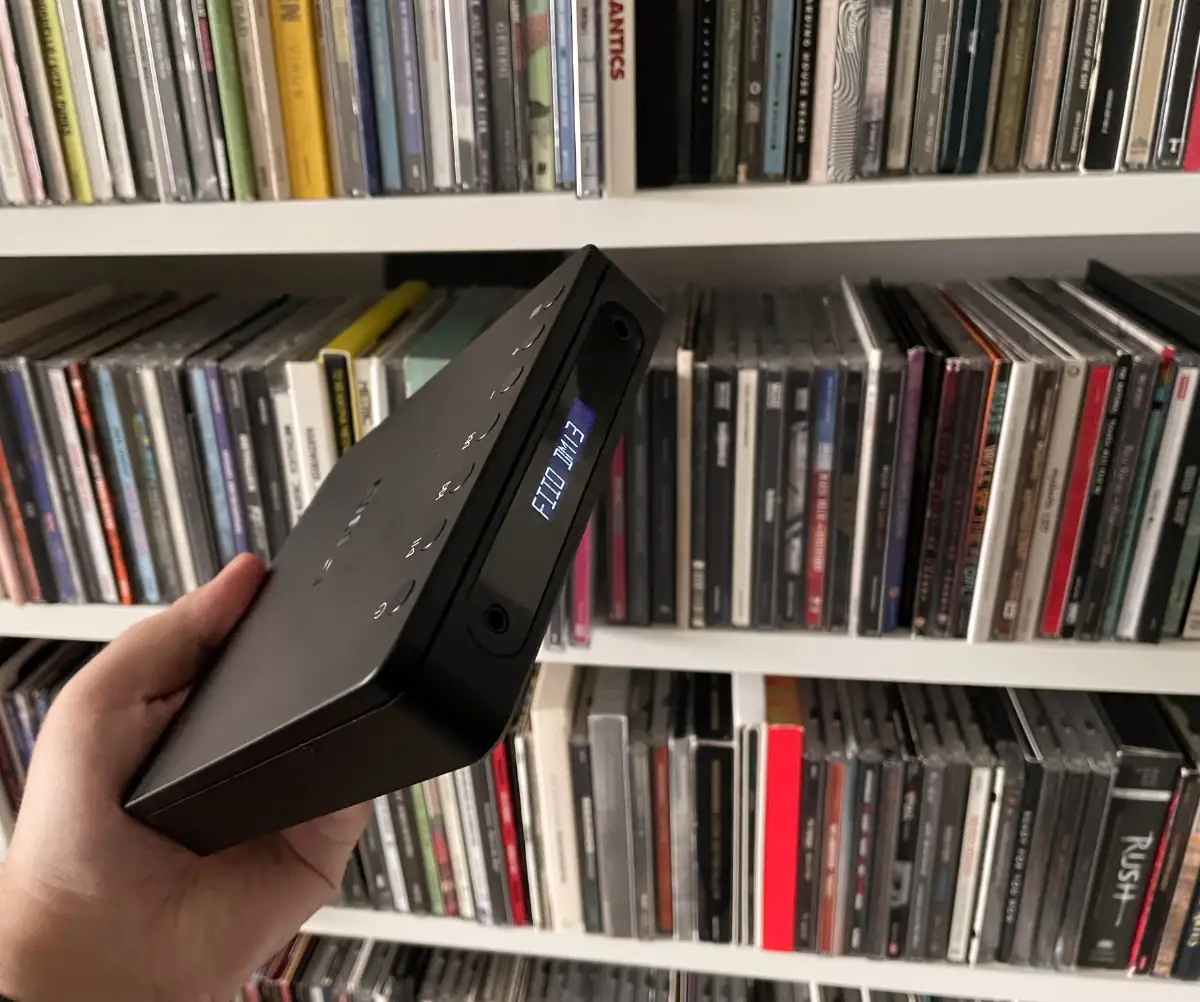
Bluetooth, by contrast, works reliably. Personally, I don’t rely on this feature, but it makes sense given the range of high-quality wireless headphones available today. Supported codecs include aptX HD, aptX Low Latency, and standard aptX, which will please even selective listeners. LDAC support, however, is missing; FiiO has said it will be available in the upcoming DM15 model, currently in development.
Read also: FiiO FT1 review: FiiO’s most stylish headphones yet do not disappoint
Verdict
I’m genuinely appreciative that FiiO has revived a product category that had all but vanished. There simply aren’t, and haven’t been, other quality portable cassette or CD players on the market for years. FiiO has additional plans, including a portable radio (RR11) and new models of their existing players. Perhaps MiniDisc players may even make a comeback.
The DM13 is an ambitious first attempt to fill an unoccupied niche. CDs may not have the cachet of vinyl, but with sales on the rise and a renewed interest among younger listeners, the DM13 has the potential to gain traction. It’s a solid product with several clear drawbacks. Navigation and controls could be improved, and the software is a bit unstable. It feels somewhat unfinished and could use a firmware update. Since I have an early version, it’s unclear how the retail model may differ or if these issues will be resolved.

